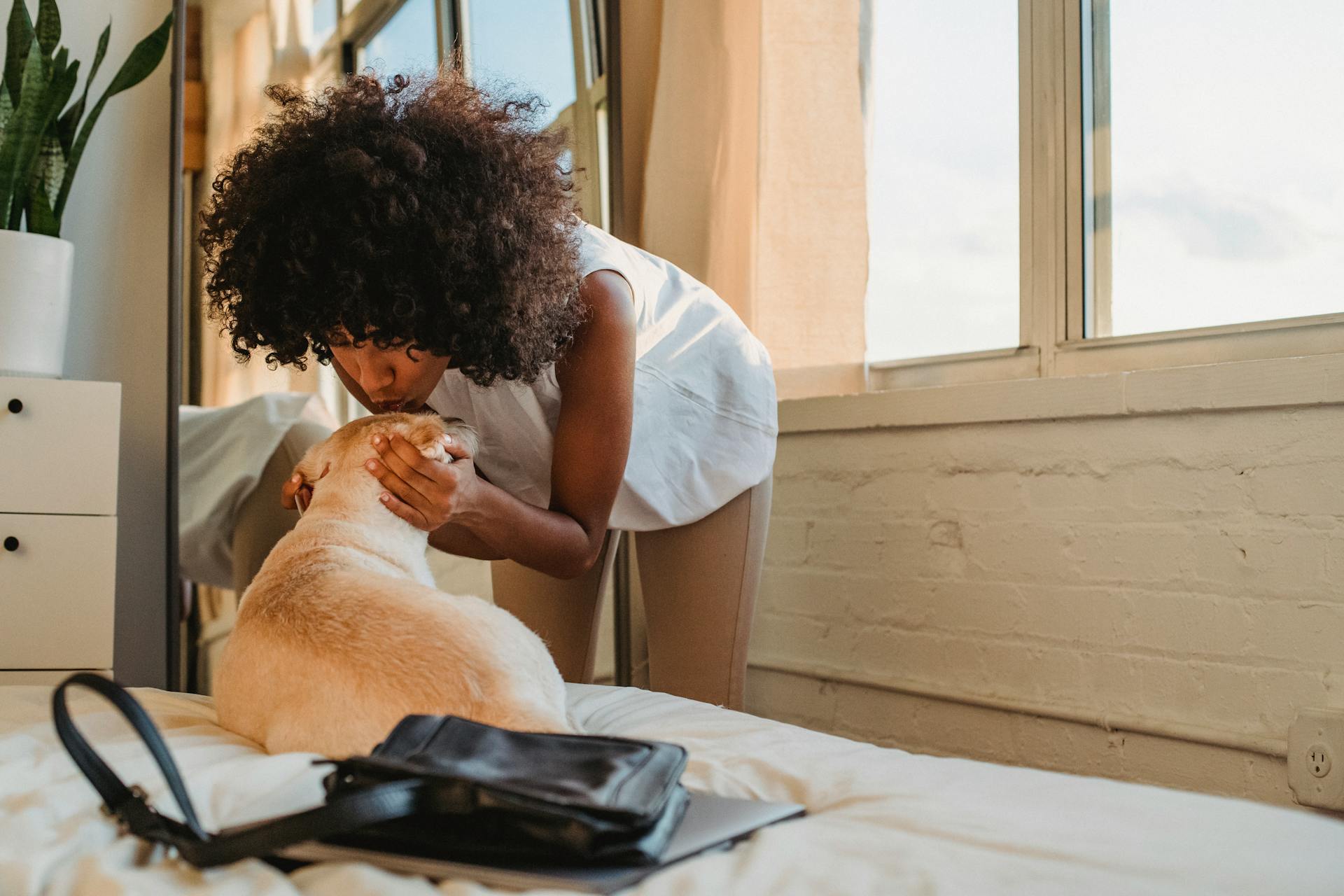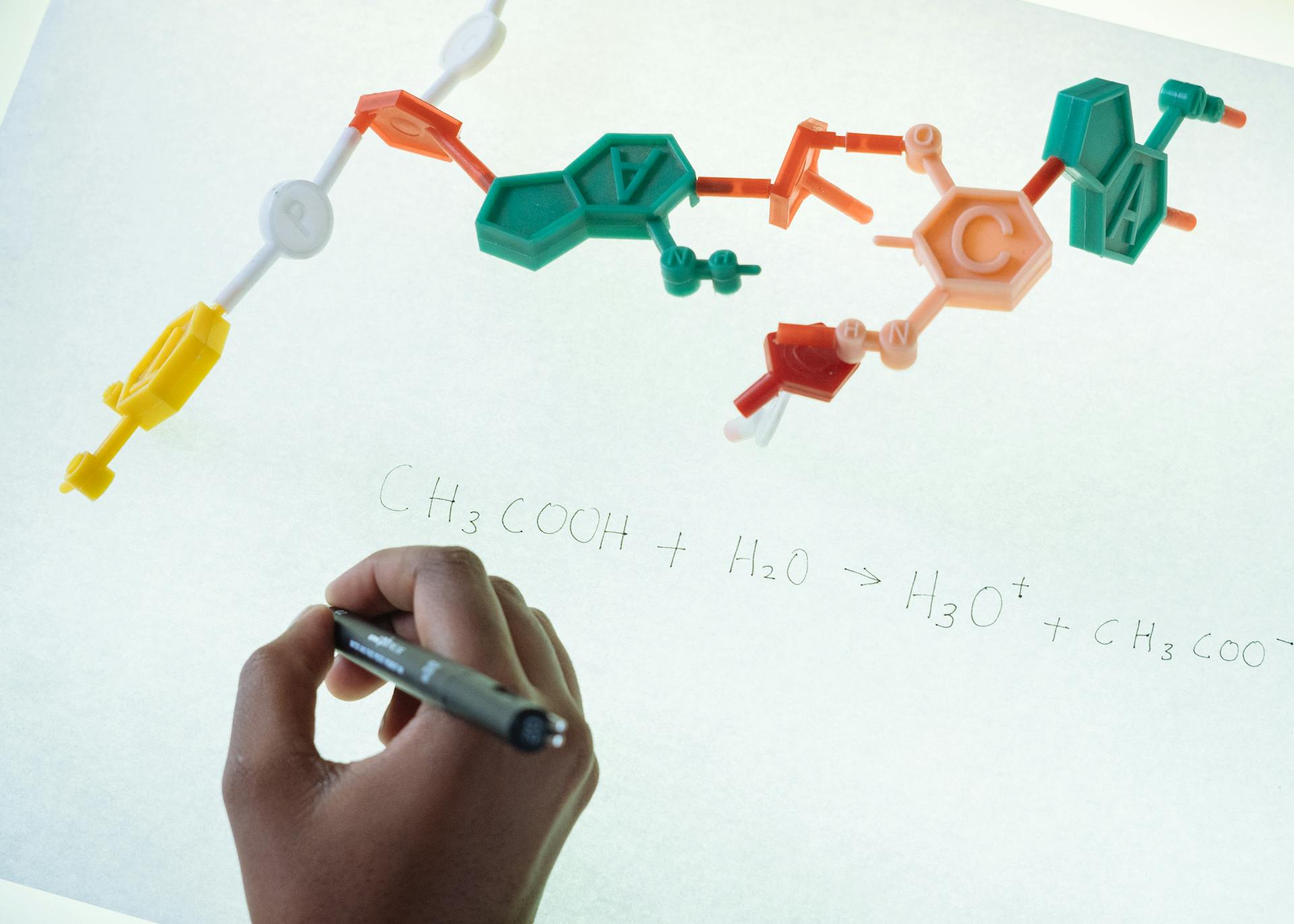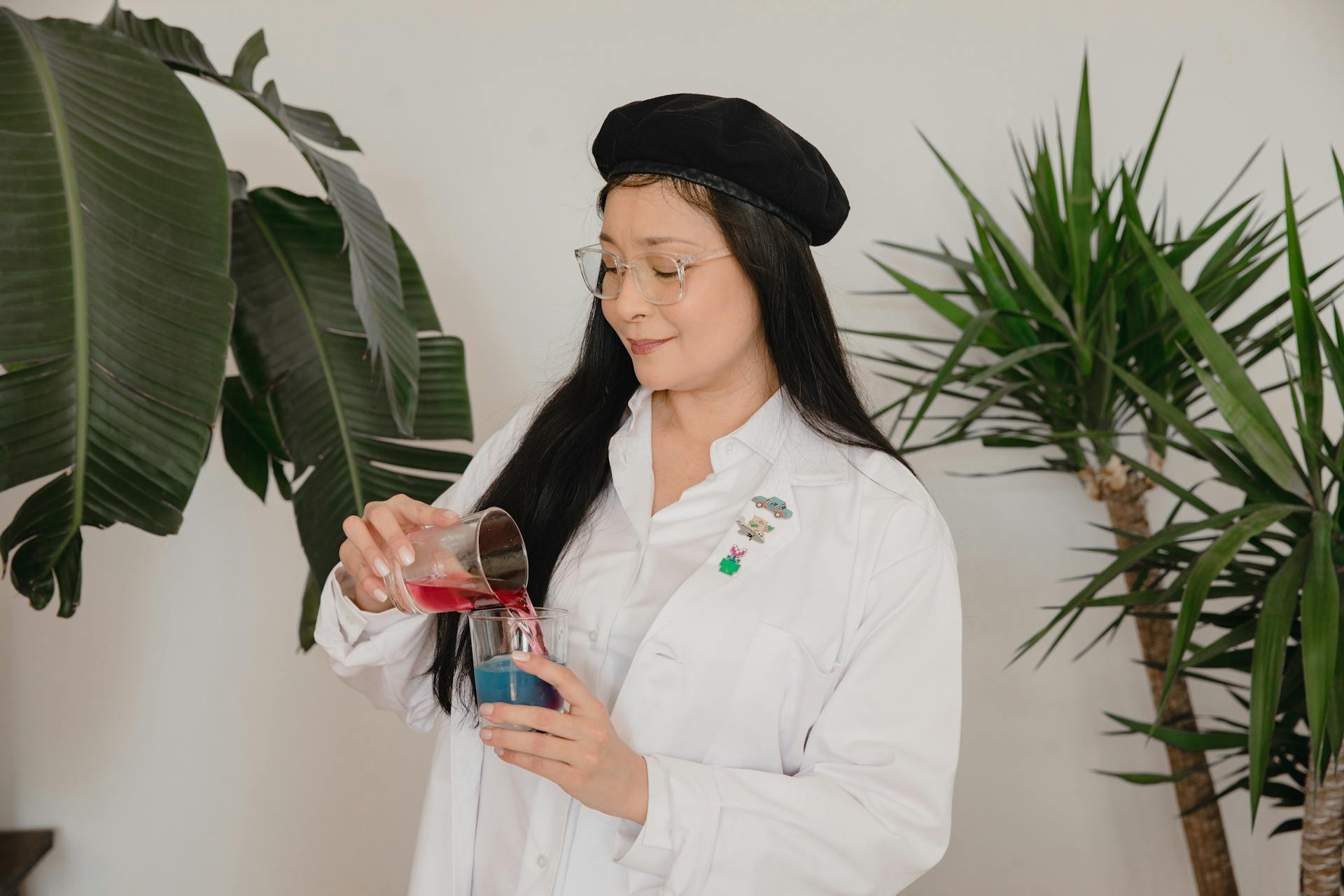
The Lab Retriever Pointer Mix is a cross between a Labrador Retriever and a German Pointer, two breeds known for their intelligence, athleticism, and loyalty.
This mix is often referred to as a "Lab Pointer" or "Labdor Pointer."
The Lab Retriever Pointer Mix is generally a medium to large-sized dog, weighing between 55-80 pounds and standing between 21-25 inches tall.
They have a short, smooth coat that requires minimal grooming.
Friendship and Temperament
The Lab Retriever Pointer mix is a friendly and gentle breed that thrives on attention and stimulation. They form strong bonds with their owners and are loyal companions.
These dogs are highly intelligent and need plenty of exercise to prevent boredom. They're perfect for active households with plenty of time for play and training.
Lab Pointers are loving and active dogs that love to be around humans and participate in daily activities. They don't do well left alone for long periods of time, so a busy family with a flexible schedule is ideal.
Their high energy levels make them perfect companions for kids who love to run and play. They're also gentle enough to play without hurting smaller children.
While Lab Pointers can be independently-minded, they're very amenable to training with positive reinforcement. They're not suited to being guard dogs, but rather friendly and gentle companions.
Health and Care
Lab Pointer mixes are generally healthy dogs, but like any breed, they can be prone to certain health issues. Regular veterinary checkups are essential to detect any health concerns early.
Some common health problems Lab Pointers may face include obesity, skin problems, and hip and elbow dysplasia. These conditions can be managed with proper exercise, diet, and grooming.
Lab Pointers require a lot of exercise, aiming for close to an hour and a half of outdoor time each day. This can be achieved through activities like hiking, which also allows for water play if desired.
Weekly teeth brushing sessions are a must for Lab Pointers, and your vet can recommend a suitable toothpaste brand. It's also essential to check paw pads and nails, especially after long outdoor sessions.
Lab Pointers are prone to ear infections, so regular ear cleaning is crucial. Your vet can advise on how to do this at home.
To keep your Lab Pointer healthy, it's essential to maintain a balanced diet and avoid overfeeding. Feeding them only twice a day with 2-3 cups of good quality dry food is recommended.
Here's a list of potential health issues to watch out for in your Lab Pointer mix:
- Cold Tail
- Ear Infections
- Joint Dysplasia
- Allergies
- Skin Issues
- Cysts
- Epilepsy
- Eye Issues
- Heart Problems
- Bloat
- Myopathy
- OCD
- Neurotropic Osteopathy
- Addison’s Disease
- Chondrodysplasia
Exercise and Training
Lab Pointer mixes are incredibly intelligent and loyal to their owners, making them a breeze to train. They thrive on positive reinforcement, so be sure to use treats and praise to encourage good behavior.
These dogs have a ton of energy and need regular exercise to keep them happy and healthy. A daily run, swim, or hike is a must, and they should also have an enclosed yard to run around in.
Lab Pointer mixes can become destructive if they don't get enough physical activity, so keep an eye out for signs of boredom or excess energy. Long walks, playtime, and mental stimulation are key to keeping them engaged and preventing weight gain.
As a mix of hunting and sporting breeds, Lab Pointers are naturally inclined to be working dogs. They love to please their owners and respond well to training, especially if it's fun and rewarding.
Exercise Needs
Lab Pointer mixes require a lot of exercise to keep them happy and healthy.
They love being outdoors and are ready for anything - running, swimming, or hiking. Their high energy levels make them perfect companions for kids who love to run and play.
If your Lab Pointer isn't getting enough exercise, they can become destructive, burning off their excess energy by chewing. This is a sign that they need more physical and mental stimulation.
Long walks, playtime throughout the day, and other ways of keeping them stimulated should be done quite often to avoid weight issues and boredom. This will also help to keep them healthy and prevent them from becoming overweight.
Lab Pointers are born to be sporting dogs, so they need activities that challenge them physically and mentally. Agility or obedience training are great options to consider.
They love the water, so if you have access to a pool or a lake, be sure to take them there often. This will help to meet their high exercise requirements and provide them with a fun and refreshing experience.
Training
Training is a breeze with German Shorthaired Lab and Lab Pointer mix dogs, as they are incredibly intelligent and loyal to their owners.
These dogs are classic people-pleasers, which means they will try their best to listen and follow commands. Positive reinforcement is the best training method for them, as negative reinforcement can cause them to shy away from tasks.
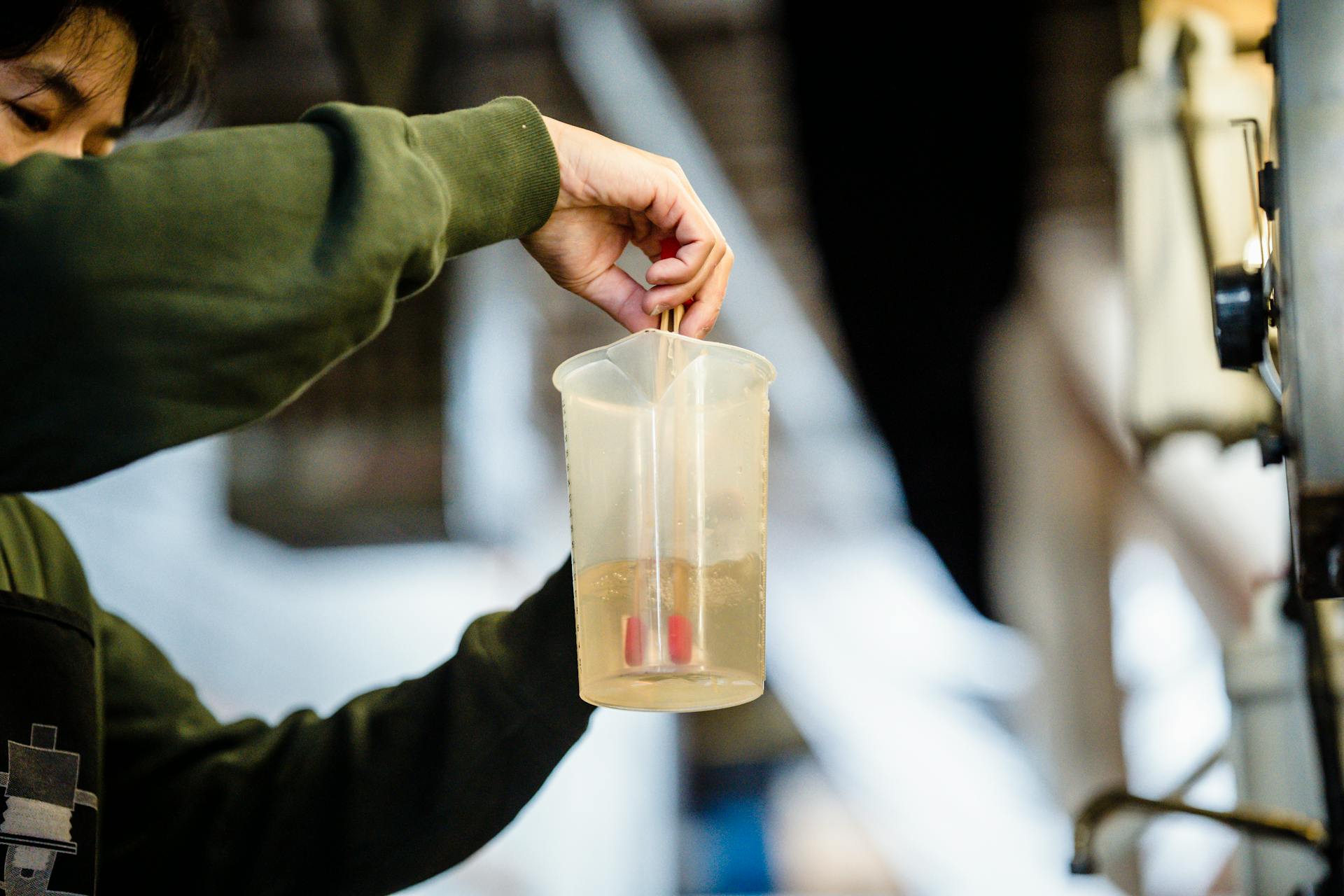
Agility and obedience training are great options for these dogs, as they force the dog to be highly receptive to your demands while also exerting a lot of energy, helping to meet their high exercise requirements.
Using treats and positive reinforcement are great tools to implement when going through the training process, making it fun and rewarding for your dog.
Lab Pointer mixes are known for being stubborn, so their trainer needs to be firm during the training process.
Grooming and Maintenance
The Lab Retriever Pointer mix is a beautiful breed, but they do require regular grooming to stay healthy and happy. Their coats can be a combination of creamy white, brown, and black, and they have a straight, dense coat that sheds moderately.
You'll need to brush your Lab Retriever Pointer mix at least twice a week to reduce shedding and prevent hair build-up around the house. In hotter months, they may shed more, so you'll need to brush them more frequently.
Their ears are prone to infections due to their floppy ears and love of water, so make sure to dry them thoroughly after swimming and clean them regularly. This will help prevent painful infections.
Brushing their teeth regularly is also essential to keep them healthy, and use pet-friendly toothpaste and a gentle toothbrush to make the experience less frightening for your dog. Nail clipping should be done routinely to prevent long nails from chipping and breaking.
Here's a rundown of the grooming tasks you'll need to perform regularly:
- Brushing: at least twice a week
- Bathing: only when necessary, as over-bathing can dry out their skin
- Ear cleaning: regularly to prevent infections
- Nail clipping: routinely to prevent long nails
- Teeth care: brush their teeth regularly to keep them healthy
Remember, grooming is an essential part of caring for your Lab Retriever Pointer mix, and with regular brushing and attention to their ears, nails, and teeth, you'll be able to keep them happy and healthy for years to come.
Family and Pet Compatibility
The Lab Pointer mix is a great addition to any family, especially if you have kids. They will form strong bonds with children and become playmates, but early training and socialization is essential.
Supervising playtime between kids and dogs is crucial to avoid any accidents. Even with a well-trained dog, you should always keep a close eye on interactions between the two.
Early socialization really pays off with this mixed breed. Reward your Lab Pointer for good behavior and adhere to a proper training regimen from the start.
The breed's high prey drive might be an issue with smaller animals, so introduce them properly and set boundaries right from the start. You should also supervise interactions between the Lab Pointer and other pets.
Proper introduction and training can make other animals part of the Lab Pointer's family. Their intelligence allows them to learn easily and get along with other pets when socialized properly.
Owning and Caring
Owning a lab retriever pointer mix requires a significant amount of exercise, aiming for close to an hour and a half of outdoor time each day. This can be achieved by taking your dog on hikes and swimming with them in nearby water sources.
Lab retriever pointer mixes are highly energetic and need interactive toys to keep them satisfied, especially due to their high prey drive. Regular teeth brushing sessions are also essential, with weekly sessions recommended by veterinarians.
To ensure your lab retriever pointer mix gets along with other pets, it's crucial to introduce them properly and set boundaries from the start. Early socialization is key, and rewarding good behavior will make the process much smoother.
Owning a Pet
Regular veterinary checkups are crucial to detect health concerns early in your Lab Pointer. Your vet can help develop a care routine that will keep your dog healthy.
Lab Pointers need a lot of exercise, aiming for close to an hour and a half's worth of outdoor time each day. If you're a hiker, bring your Lab Pointer along with you.
You'll want to implement weekly teeth brushing sessions with a Lab Pointer, and your vet can advise you on the right toothpaste. Check their paw pads and nails, especially after long outdoor sessions.
Bathing your Lab Pointer only needs to be done if it comes back dirty from an outdoor adventure. Trimming their nails regularly is also a must, as clicking loudly against the floor is not normal.
Early training and socialization is very important for Lab Pointers, especially when it comes to children. They'll form strong bonds, but you should always supervise playtime between kids and dogs.
The breed's high prey drive might be an issue with smaller animals, so properly introduce your Lab Pointer to any other pets and set boundaries right from the start.
Rescue Groups
If you're considering bringing a Lab Pointer into your life, you'll want to know about rescue groups. You may be hard-pressed to find a breed-specific rescue for Lab Pointers because they're a mixed breed.
Lab Pointer rescue groups often recommend trying Labrador Retriever or Pointer breed-specific rescues, as they may care for mixes too.
If you're looking for a place to start, here are a couple of rescues you can try:
- PointerRescue.Org, Inc.
- Lucky Lab Rescue & Adoption
Origin and History
The Lab Retriever Pointer mix has a rich history that predates the "designer dog" craze of the late 1990s.
Lab Pointer mix origins go back much further than the desire for designer puppies, as people in the hunting community have traditionally been happy to experiment with breed crosses that suit their purpose.
This mix has been around for many years as a capable hunting companion and all-round family pet.
The Labrador Pointer crossbreed is a result of combining two dog breeds from the same group, the sporting group, which increases the chances that the resulting puppies will be similar.
Origins of Hybrid Breeding
Labrador Pointer mix origins date back to the hunting community, where people experimented with breed crosses to create a capable hunting companion and family pet.
The desire for designer puppies in the late 1990s led to a surge in hybrid breeding, but the Labrador Pointer crossbreed is nothing new.
Lab Pointer mix origins are rooted in the sporting group, where similarities between parent breeds increase the chances of similar puppies.
Suggestion: Dog That Looks like a Lab but Smaller
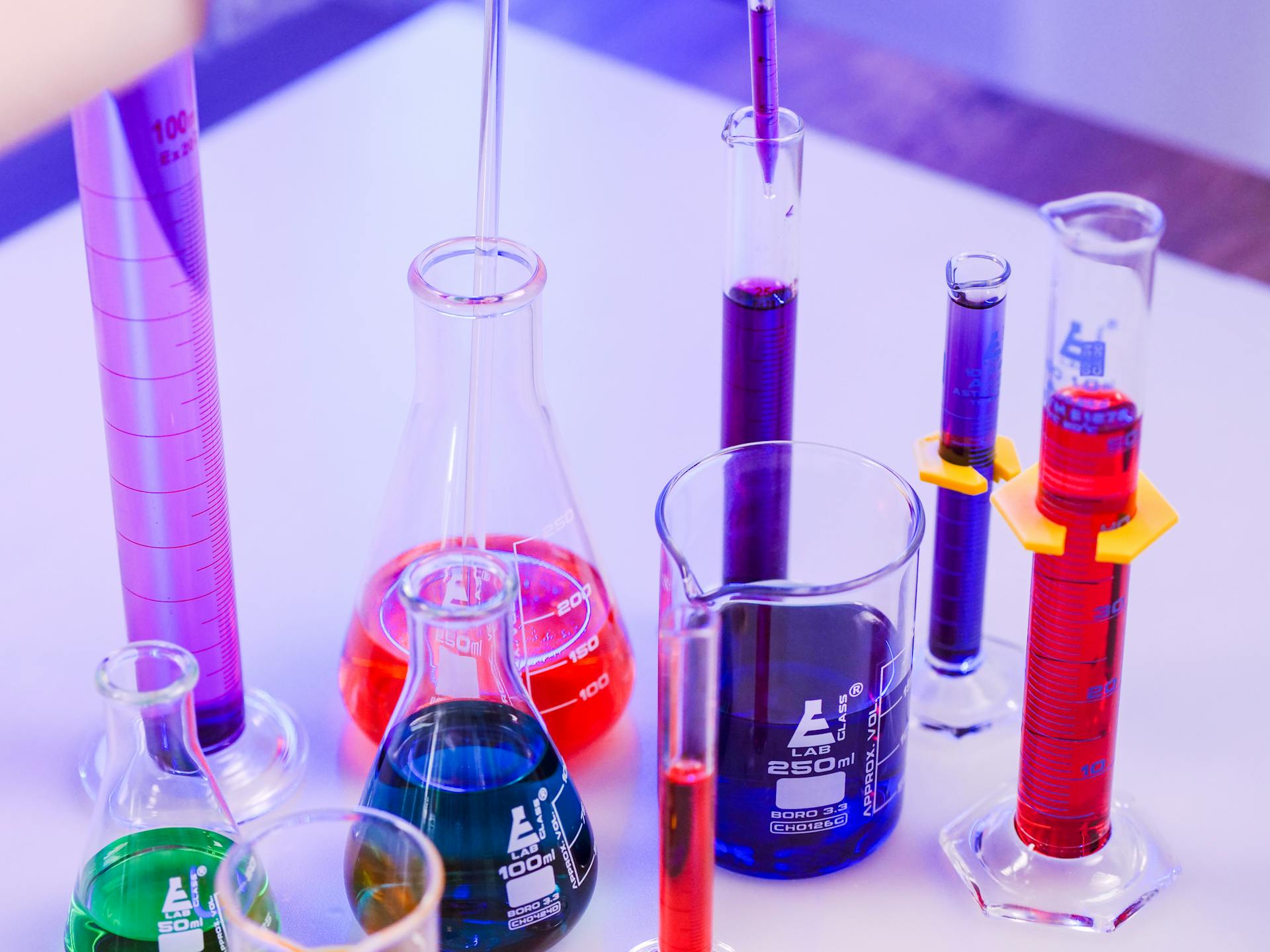
In the hunting community, breed crosses were created to suit specific purposes, and the Labrador Pointer mix has been a successful outcome.
Labrador Retrievers were bred by Canadian fishermen to retrieve lines, and German Pointers were bred to be athletic and responsive for hunting purposes.
Both parent breeds have hunting roots, making their offspring, German Shorthaired Labs, very athletic and agile.
The Labrador Pointer mix has been around for many years, making it a tried and tested breed for both hunting and family life.
Here's an interesting read: Redbone Coonhound Mix Puppies
Designer Dog with Hunting Roots
The German Shorthaired Lab is a designer dog with a rich history. It's a cross between a German Shorthaired Pointer and a Labrador Retriever, two breeds with hunting roots.
Both parent breeds were originally bred for hunting purposes. German Pointers were specifically bred to be athletic and responsive for hunting, while Labrador Retrievers were bred by Canadian fishermen to retrieve lines.
The German Shorthaired Lab inherits these hunting instincts from its parents. It's a versatile dog that can perform high-energy tasks, such as hunting and retrieving game.
Here's an interesting read: Short Hair Lab Mix
The breed's hunting roots also make it an excellent companion for active families. German Shorthaired Labs are known for their intelligence, eagerness to please, and high level of trainability, inherited from the German Pointer breed.
As a gun dog, the German Shorthaired Lab has a strong instinct to hunt and retrieve game. This makes it a great choice for families who enjoy outdoor activities and hunting.
Consider reading: German Shorthair Pointer Mix
Physical Characteristics
Lab retriever pointer mixes are typically medium-sized dogs, weighing anywhere between 35 to 85 pounds.
Males tend to be larger than females, which is a common trait in many breeds.
They usually range in height from 22 to 28 inches, with males reaching around 23 inches at the shoulder.
The amount of shedding and grooming needed can vary depending on the individual dog's traits and inherited genes.
As a general rule, lab retriever pointer mixes have short fur, which makes grooming relatively easy.
Physical Characteristics
Pointerdors are typically between 50 and 85 pounds when they're fully grown.
The difference in height and weight is really dependent on the individual dog, their parents, and their gender.
Male pointerdors are typically larger than their female counterparts.
Pointerdors can grow up to 23-28 inches tall when measured to the shoulder.
They can display pointing behavior at a young age, just like their pointer parent.
The color options of pointerdors are dependent on their parents, offering a wide range of possibilities.
You could have a German shorthaired pointer and a chocolate lab, or an English Pointer with lemon colored spots and a black lab.
All forms of pointer and labradors have short fur, so that's typically a given.
The texture and amount of shedding will differ depending on the traits and inherited genes of each individual pointerdor.
The amount of grooming they need may be more on the extreme side, but it won't be enough to cause problems.
Highlights
The Lab Pointer is a mixed breed dog, and as such, their physical characteristics can vary. They come in a range of colors, including creamy white, brown, and black.
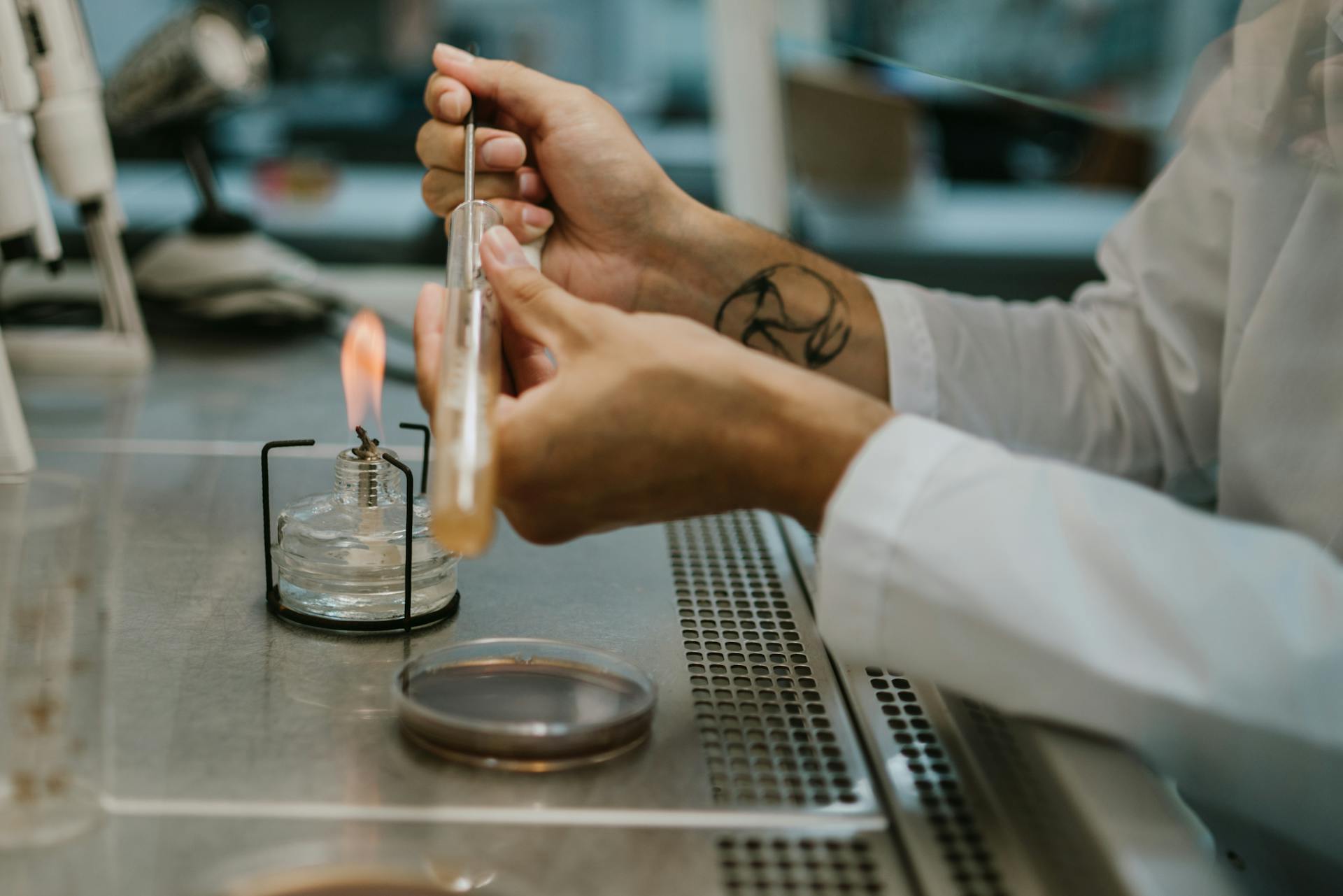
Their coat is relatively low maintenance, requiring only occasional brushing. However, during the hotter months, they shed more, so you'll need to increase the frequency of brushing sessions.
Lab Pointers are built for exercise and love to get outside. They need longer walks and access to an off-leash dog park or a safe area where they can run around freely.
Their high prey drive means they shouldn't be left unsupervised, especially around small pets.
Lab Pointers are a great match for families with children, forming strong bonds and becoming playmates. However, early training and socialization are crucial to ensure a harmonious household.
Here are some common colors you can expect to see in a Lab Pointer:
- Creepy white
- Brown
- Black
Frequently Asked Questions
Is a Pointer Lab mix a good dog?
Yes, a Pointer Lab mix can be a great fit for devoted owners, as they are intelligent and relatively easy to train. With proper care and attention, they can thrive as loving and energetic companions
What is a Lab and Pointer mix called?
A Lab and Pointer mix is commonly known as a Lab Pointer or Pointerdor. You can find these lovable mixed breed dogs waiting for adoption in shelters and rescues.
What is the personality of a Lab Pointer?
Lab Pointers are playful, energetic, and love to stay active, making them perfect for families who enjoy outdoor adventures. They thrive on exercise and mental stimulation, requiring engaging activities to keep them happy and healthy.
What is the lifespan of a Lab Pointer mix?
A Lab Pointer mix typically lives for 10 to 15 years. With proper care, this energetic breed can enjoy a long and healthy life.
Do Lab pointers shed?
Lab pointers are prone to heavy shedding due to their coat type, but regular grooming and supplements can help manage it. Regular bathing and brushing, along with fish oil supplements, can reduce shedding and keep your Lab pointer's coat healthy.
Sources
Featured Images: pexels.com
